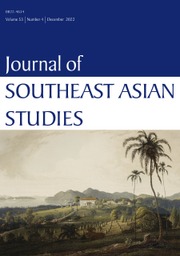Becoming Indigenous Peoples in Thailand
Publication Description
Prasit Leepreecha. (2019) “Becoming Indigenous Peoples in Thailand,” Journal of Southeast Asian Studies. 50(1): 32-50.
Abstract
This article investigates the processes of becoming Indigenous Peoples in Thailand by tracing the transnational relationships and influences of global Indigenous movements on the creation of the Network and the Council of Indigenous Peoples in Thailand (NIPT and CIPT). In addition, it examines the Indigenous Peoples’ movement toward both internal and external recognition. I argue that in Thailand the Indigenous Peoples movement stems from the global movement and exists in relation to international organisations. Within Thailand, the movement represents a deterritorialisation of the ethnoscape, with those now identified as Indigenous Peoples previously being identified as ‘tribal peoples’, ‘ethnic minorities’, or ‘Others’ who threatened national security. Indigenous Peoples are also self-identifying as native and marginalised peoples whose basic rights must be recognised and who advocate for equal treatment as citizens. Yet, the Indigenous Peoples’ movement in Thailand is developing through a process of ongoing negotiations with various internal and external sectors. As a Hmong anthropologist and long-time participant in the Indigenous movement in Thailand, in addition to secondary sources, I draw mainly on personal observations and interviews with key informants.

